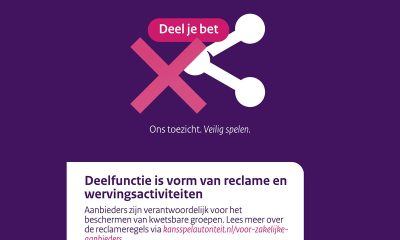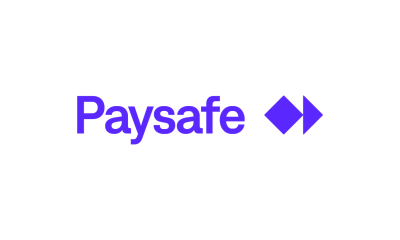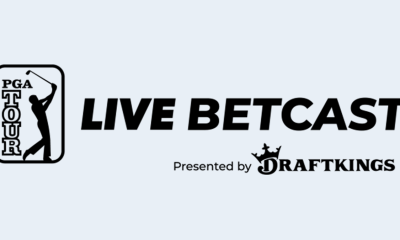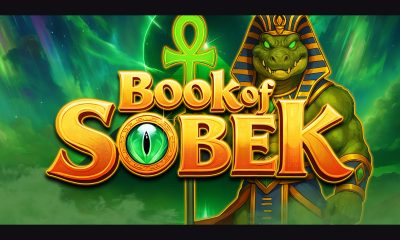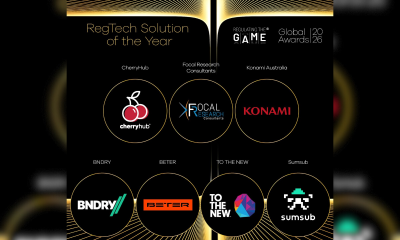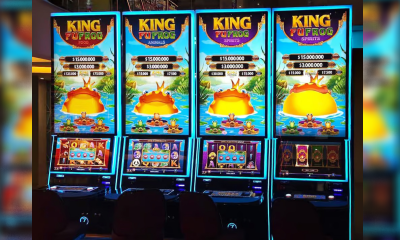Interviews
The Full Spectrum Strategy: How Betting on Both Popular and Lesser-Known Sports Pays Off
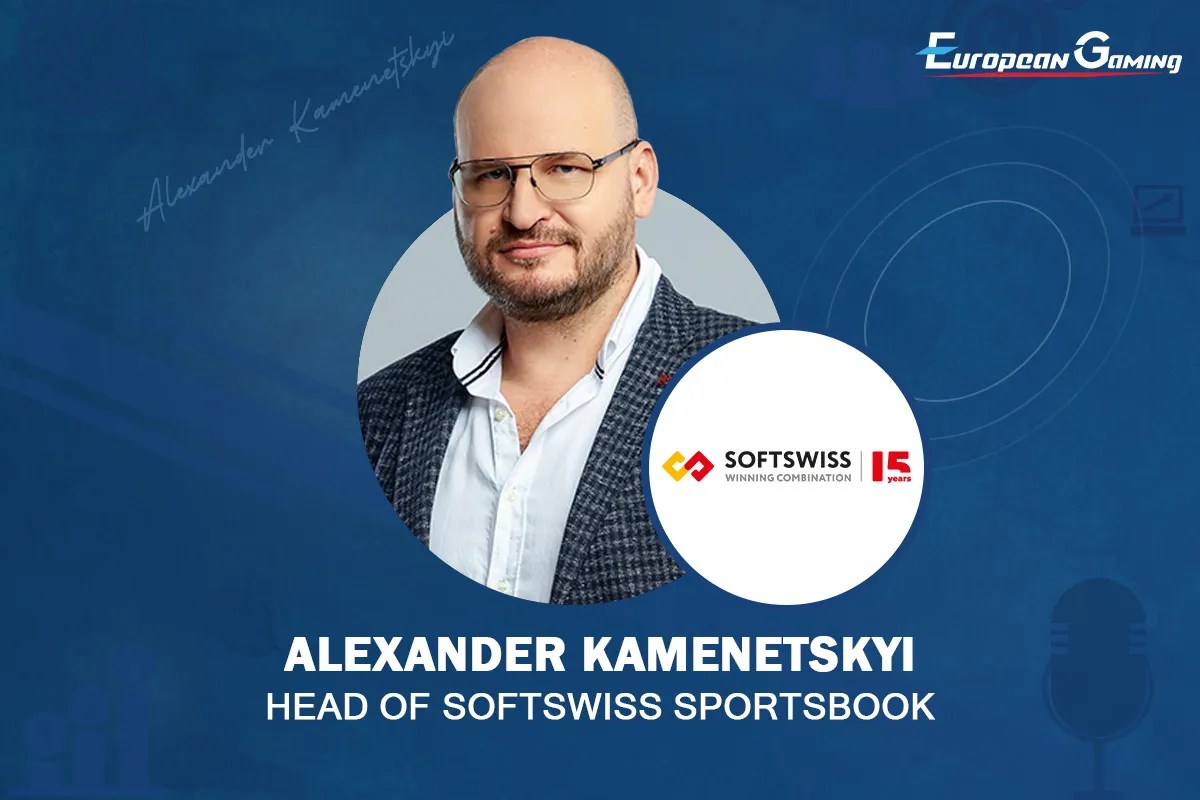
In an insightful interview with Alexander Kamenetskyi, Head of SOFTSWISS Sportsbook, we delve into the complex balance between promoting mainstream sports events and exploring niche markets in the betting world. This strategy enhances profitability and ensures a steady engagement across diverse betting markets, crucial for maintaining a dynamic and resilient business model in the competitive world of sports betting.
How should operators balance promoting popular sports events versus niche ones?
The effective strategy in betting is to diversify wagers across a broad range of sports events and markets. This approach helps minimise fluctuations in outcomes, enhancing both the profitability and predictability of your betting business.
Based on this, we recommend that operators promote all sports comprehensively to maintain steady activity and turnover. This ensures that players remain engaged with alternative options, even during periods lacking major events.
It’s crucial not only to focus on popular events like top football matches or major NBA tournaments but also to spotlight less mainstream sports such as water polo, badminton, and Formula 1. For instance, Australian football is notably underappreciated despite offering unique scheduling advantages that can be leveraged during off-peak times to attract bets.
How can you choose sports that have the best chance of attracting your audience?
To effectively capture your audience’s attention, it’s crucial to identify alternative events during periods when popular events like the Champions League are not happening. Our strategy involves actively promoting these alternatives to familiarise players with new tournaments and sports.
We have two dedicated teams: one that selects potential events and advises operators on what to highlight, while the other crafts promotional campaigns to ensure these events resonate with your audience.
The primary factors we consider when selecting events are Total Bets and the number of bets placed on a specific event or tournament. Popularity is our second criterion, which we measure by comparing the turnover to the number of participating players.
For instance, if there are no football championships over a weekend due to Euro qualifying matches, we might suggest promoting NBA evening games or volleyball tournaments to fill the gap left by high-profile football events.
However, it’s also beneficial to occasionally promote sports other than football, even when popular football matches are available. This strategy helps diversify the betting habits of the audience, which is vital for maintaining a stable and engaging product.
How far in advance do you need to start working on a promotional campaign?
We typically share promotional materials with operators two weeks prior to the event. This timeframe usually provides ample opportunity for operators to finalise the text and graphics. If we opt to use bonuses as the main promotional tool, we generate the rules, bonuses, and banners automatically. It’s then up to the operator to create and either self-publish the content or do so with our assistance.
What promotional channels would you recommend focusing on?
Operators have a variety of tools at their disposal, from email and SMS campaigns to managing their own channels on Telegram and other messaging platforms where they can share updates, offer bonuses, and more. Many even offer additional bonuses for subscribers of these communities, which proves effective in building a targeted and loyal audience interested in your project’s bonuses.
Another effective strategy involves placing promotional banners on various sections of the operator’s website, such as the homepage, event pages, and user dashboards. Additionally, collaborating with influencers like streamers can significantly boost traffic.
It’s also crucial not to overlook the power of email newsletters. When crafting content for these, it’s important to consider user behaviour and device preferences. For instance, with over 90% of our current revenue coming from mobile devices, it’s safe to assume most emails will be opened on a smartphone. Thus, optimising for mobile viewing is key. Our tests show that simple, structured, and transparent offers tend to perform best – you only have a few seconds to capture the player’s attention and persuade them to click through.
Do promotions without financial incentives like bonuses still work?
Let’s be clear: bonuses and promotions are fundamental to attracting players, especially those who rely on luck to multiply their capital. Seen as lucky breaks, bonuses allow participation without direct cost. Properly integrated into the marketing strategy, these incentives not only maintain player interest but significantly enhance financial performance.
For example, if an operator earns 15% from express bets, they can afford to redistribute 5% of that as bonuses, slightly reducing their margin to 10%, but potentially increasing user engagement and solving other operational issues.
Furthermore, promotions enable operators to direct betting activity efficiently. While major events naturally draw attention, incorporating bonuses for lesser-known events like the World Curling Championship can broaden a player’s interest and betting activities, introducing them to new sports and betting markets. This strategy not only diversifies the player’s experience but also stabilises the operator’s financials by spreading funds across various sports, thereby reducing the impact of financial peaks and troughs during major events.
Some operators focus primarily on significant events, leading to considerable financial volatility. For example, many faced challenges during the European Football Championship qualification matches when favourites won, negatively impacting financial outcomes. Operators that engage their audience across a spectrum of events tend to experience more stable performance.
Ultimately, using high-profile events to attract new players while promoting a diverse range of smaller events can create a more robust and diversified betting environment. This approach mitigates risks and cultivates a more engaged and knowledgeable betting community.
How likely is it that a person who came to a particular event will continue engaging with you afterwards? What influence can an operator have during this time?
Welcome packages with various bonuses are highly effective in this scenario. The primary goal is to familiarise new players with the range of bonuses and sports offered. Ideally, the entrance bonus program should provide about 20-30% to engage the player effectively.
Besides the welcome package, we can implement trigger-based rules during major events. For instance, a new player might come for the World Cup, and we could offer a promotion like: “Win three World Cup bets and receive a free bet for Wimbledon.”
Once engaged, they might notice a dominant player like Djokovic and place a bet on tennis, triggering another promotion. For example, we could offer a 50% bonus for making an express bet with specific odds on three tennis events. This showcases our diverse bonus system and introduces new sports gradually.
Furthermore, promoting sports tends to be easier than casinos because there are more events and thus more opportunities to engage players through channels like email newsletters, with less risk of being flagged for spam.
We advise our operators to customise bonuses for specific player demographics – like promoting Brazilian tennis players to Brazilian users or Nigerian athletes to Nigerian users. This targeted approach is significantly more effective than generic offers and resonates even with experienced casino players.
However, it’s crucial for operators to view their offerings holistically; they don’t just have a casino or sports section, but a comprehensive project where every part should function seamlessly together, including promotions and the product’s internal functionality.
The post The Full Spectrum Strategy: How Betting on Both Popular and Lesser-Known Sports Pays Off appeared first on European Gaming Industry News.
Interviews
Scaling innovation through the launch of Tequity Publishing
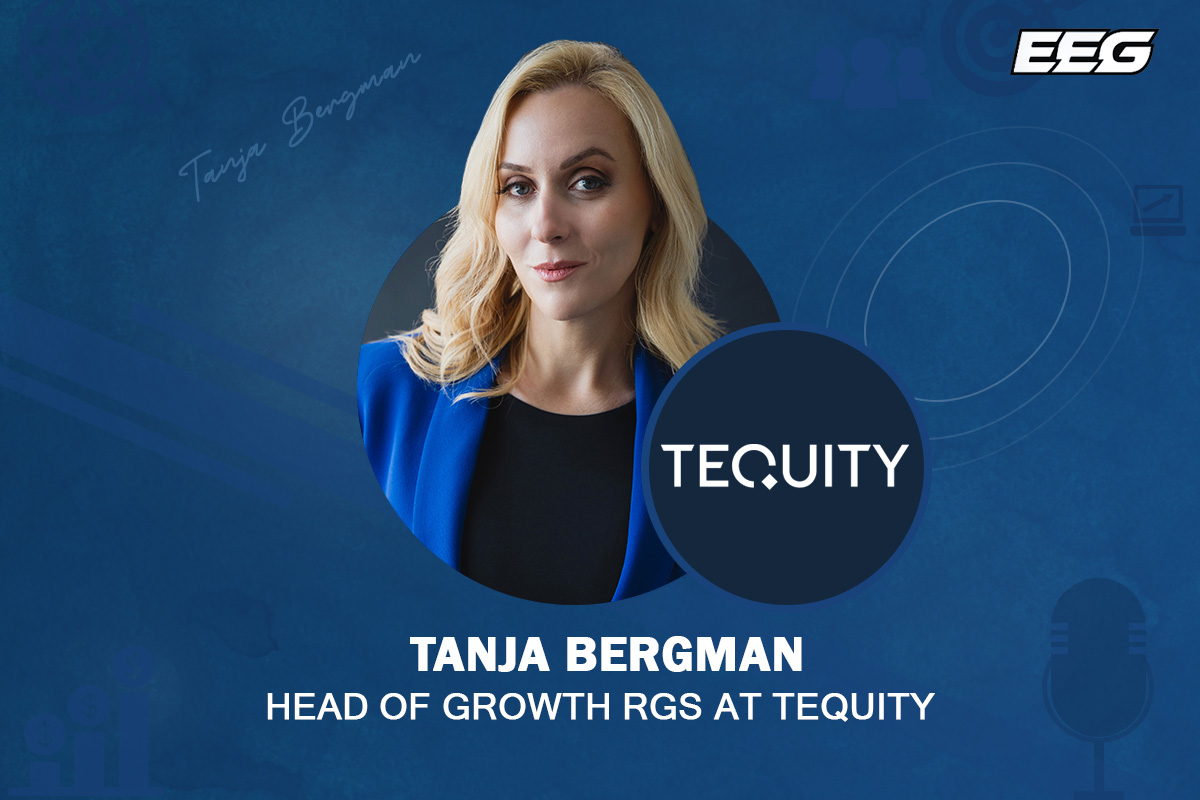
Following the announcement of its new publishing vertical and the successful debut of Royal Drop, we sat down with Tanja Bergman, Head of Growth RGS at Tequity, to discuss how this new arm is set to dismantle technical barriers for ambitious studios and why scalability is the new frontier for the ‘Burst Games’ genre.
Tequity has just officially launched its Publishing vertical. What was the primary catalyst behind this move?
The industry is currently in a fascinating place. There is no shortage of creative talent among studios, but there is a massive technical bottleneck. We have seen so many ambitious studios with incredible concepts – especially those moving beyond traditional slots – who have been getting bogged down in terms of getting those concepts out into the marketplace.
The catalyst for Tequity Publishing was simple. We wanted to break down those technical barriers. By handling the infrastructure, distribution, and compliance frameworks, we allow studios to do what they do best, which is build outstanding games. It’s about speed-to-market without compromising on the quality or the vision of their content.
The launch coincides with the release of Royal Drop. How does this game, and the partnership with Mirror Image Gaming and The Fortune Engine, showcase what Tequity Publishing is all about?
Royal Drop is the perfect proof of concept. It’s a collaboration that highlights three important pillars of modern game delivery. You have Mirror Image Gaming bringing that fresh, video-game-influenced Burst Games energy, The Fortune Engine provide the math tools and templates, and Tequity Publishing offers the global scale and distribution pathway.

It shows that when you remove operational friction, you can create a game-first experience that appeals to a new generation of players who want something more interactive than a standard 5×3 reel.
Tequity Publishing offers two models: RGSaaS and RGS-to-RGS. Can you walk us through the strategic benefits of each?
Flexibility is key, because no two studios are at the same stage of their journey. The RGSaaS model is our full-service offering. It’s designed for studios that want to focus 100% on the creative side. We provide the entire infrastructure and publishing framework and it is essentially a business-in-a-box for game creators.
The RGS-to-RGS model is a more streamlined, tech-first approach for studios that already have their own RGS but lack the distribution muscle. It allows them to plug into our growing operator and aggregator network instantly. Both models are built on the same philosophy: helping studios reach parts of the market they otherwise couldn’t access on their own.
You mentioned reaching new generations of players. How does this vertical specifically empower studios to innovate in ways they couldn’t before?
When a studio is concerned about how they are going to integrate with a multitude of different operators or how to navigate complex jurisdictional requirements, they tend to play it safe. They stick to what they know.
By taking that weight off their shoulders, we give them the opportunity to be brave. Studios like Mirror Image Gaming are pushing the boundaries of modern iGaming, taking influences from the video game world. This is exactly what the new generation of players is looking for. We provide the scalability so that these niche, innovative ideas can achieve mass-market impact.
It’s been a busy period for Tequity, following the success of your Originals series and the iBankroll partnership. How does the Publishing vertical fit into the broader Tequity roadmap for 2026?
It’s all part of becoming the ultimate technology partner for the gaming industry. Whether it’s our streamer-friendly Originals or our Bankroll-as-a-Service offering, the goal is to provide scalable, customisable solutions. Tequity Publishing is the natural evolution of that mission. We aren’t only providing the tools anymore, but also the pathway to the player. Looking ahead, you can expect a series of further launches through our three-way collaborations. We’re proving that the barrier to entry for innovation has never been lower.
Finally, for studios looking to scale quickly, what is your main message to them?
Don’t let technical noise drown out your creative signal. If you have a game concept that breaks the mould, you shouldn’t have to spend years building the distribution architecture to get it seen. That’s what we’re here for. We want to help you launch at a speed and scale that matches your ambition, so that you can make a significant splash in the industry.
The post Scaling innovation through the launch of Tequity Publishing appeared first on Eastern European Gaming | Global iGaming & Tech Intelligence Hub.
BetMGM
Breaking America with BetMGM
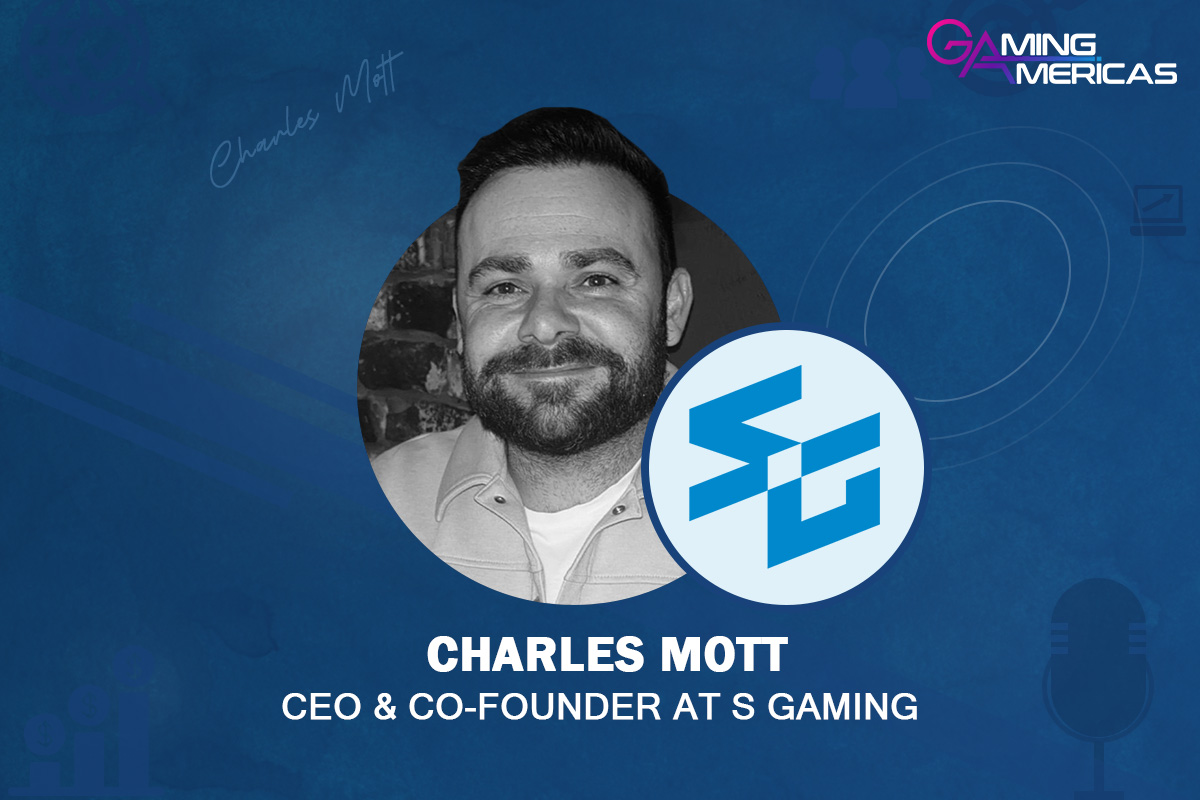
We speak to Charles Mott, CEO & Co-Founder at S Gaming, about the provider’s move into the US market with BetMGM and why more casual gameplay hits the mark with players stateside
Congratulations on your deal with BetMGM in the USA. Why is this such a milestone market launch for S Gaming?
The deal with BetMGM marks our hotly-anticipated launch in the US market, and sees our games go live to players in core regulated states such as New Jersey, Pennsylvania, West Virginia and Michigan. We see huge potential for our content in the North American market, and to make our debut with such a high-calibre operator is a testament to this. The US is still just finding its feet as a regulated online casino market, and our games, with their focus on sustainability and high entertainment, are the perfect fit for audiences who are used to land-based slots and are increasingly moving online. They are simple, easy to understand and play, and ultimately deliver tons of fun over longer playing sessions – just like the slot machines found on the floors of casinos in Las Vegas and beyond.
Just how important was it to go live with a tier-one operator like BetMGM? And how will the deal allow you to quickly build momentum in the US?
It’s mission critical. Going live with BetMGM allows us to build immediate trust with players, tap into a large and loyal playerbase, and simultaneously enter multiple regulated iCasino states at the same time. Now that we are up and running with BetMGM, we are turning our attention to striking partnerships with other operators active in the market. It’s pretty much the same blueprint that we’ve followed in our home market of the UK where we are now live with all but a handful of brands – something we have been able to achieve in a little over two years. We know the US is a slightly different market, but we are confident in our approach to game development and, as we gather more data on how US players interact with our games, will use this feedback loop to guide our product roadmap going forwards so that each title is better than the last and more suited to the preferences of US players.
You mentioned that your games are aimed at more casual players. How does this align with the preferences of US consumers?
If you walk onto the gaming floor of any Las Vegas casino, you’ll see row after row of slot machines. Increasingly, these machines are designed to keep players entertained for longer through gripping gameplay and regular wins. A lot of online slot content delivers high risk/high reward gameplay, where players can quickly clear through their balance as they hunt down big wins – wins that don’t land all that often. In a market where operators care deeply about retention and lifetime value, games that keep players spinning for longer really matter. Our approach to producing sustainable, fun games for players in the UK and Europe has allowed us to not only stand out but to engage players at scale, and we are confident players in the US, especially those who enjoy land-based slotting, will also be drawn to them at scale.
Has launching in the US been a major undertaking for S Gaming, or did it prove to be plain sailing for the most part?
When planning our move into the US market we identified two routes. We have our own remote game server, so we could build on that, secure licences in each state we wanted to enter, and then deploy our content directly with operators. The other option would be to work with a third-party RGS provider that already has the licences and integrations we needed. While the first option might sound like the best, in reality, especially for a smaller studio, the cost of and resources required for securing individual state licences can be prohibitive. So instead, we joined forces with Gaming Realms as they have the cutting-edge RGS and licences (in both the US and Europe) we were looking for. This means we simply need to build a US version of each game on the Gaming Realms RGS and can then deploy content with the wide range of operator partners they are connected with in regulated iCasino states across the US.
Tell us more about the initial run of games you’ve launched with BetMGM.
We’ve launched the partnership with Barnyard Bash Chicken Chase which will be followed by Triple 7 Jackpot in February and Cat and Mouse Collect in March – with one new game a month to follow as we build out our US portfolio. If players were to try just one of our games, it would be Barnyard Bash Chicken Chase. It gets players clucking as they spin the reels, collect Eggs and add them to the growing Nest – the more eggs collected, the bigger the Nest Egg becomes. Not only that, Eggs can randomly activate the matching colour-coded Nest Egg and award entry to the Chicken Trail feature, drop Egg-stra Free Spins or lay an Instant Prize.
But once they’ve tried it, they’ll definitely want to take Triple 7 Jackpot for a spin. This classic slot is dripping in neon action – the Triple 7 feature is always on screen but is locked until a spin lands three Bonus 777 symbols. This unlocks the feature with on spin awarded, giving players a shot at the 500x Jackpot prize. Free Spins are also up for grabs with seven Free Games awarded when three Scatters land in the base game.
Finally, Cat and Mouse Collect is a playful, feature-rich slot built around a simple but engaging Collect mechanic. Players pin the reels, collect up the cheeses and feed the hungry mice until they’re fit to burst. Green plates will serve up an instant prize, Blue will start the wild and wacky Cheese Chase and Red dishes out some feisty Free Spins. With regular feature triggers and plenty of on-reel interaction, it’s designed to keep players engaged from spin to spin without relying on extreme volatility.
What does success in the US look like for S Gaming over the next 12-18 months?
Success for us isn’t about one big hit, it’s about becoming a trusted, widely-distributed supplier in regulated iCasino states. Over the next year we want to significantly expand beyond BetMGM, roll out a steady pipeline of US-optimised titles and build the kind of player data and
operator relationships that let us grow sustainably. If players in New Jersey, Pennsylvania and Michigan are regularly choosing S Gaming titles as part of their core rotation, then we’ll know we’re really breaking into the market.
The post Breaking America with BetMGM appeared first on Americas iGaming & Sports Betting News.
3 Fortune Trees.
Kendoo interview: Can stability be the new innovation?
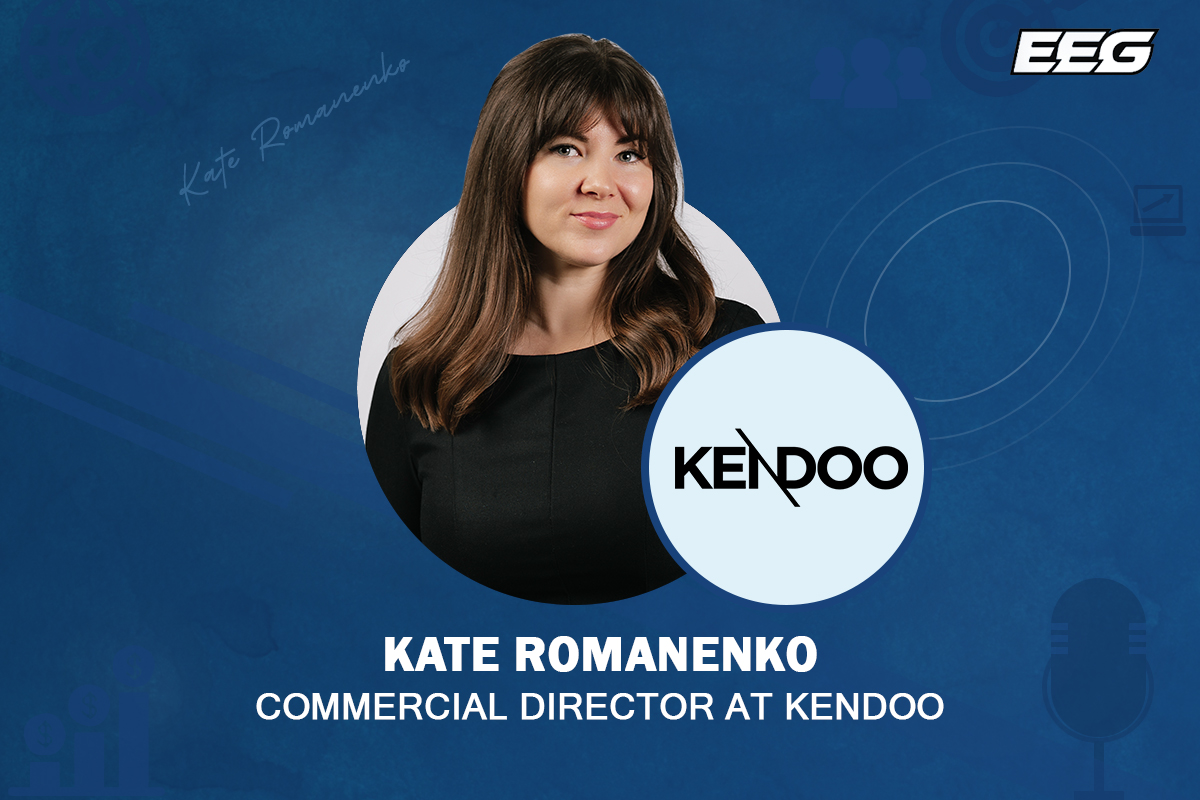
What innovation consists of within the slots industry is often debated. While there are often calls for more groundbreaking features to be introduced, the reality is that the progression of trusted and popular concepts is what drives the industry forward with new releases.
We caught up with the Kendoo’s Commercial Director, Kate Romanenko, to understand more on how long-term retention is often underpinned by controlled evolution of proven concepts, as shown in the company’s success over the past year.
In an industry driven by novelty, why do you think long-term consistency is becoming just as valuable as innovation?
In the competitive iGaming market, everyone is obsessed with “what’s next,” long-term consistency has become a signal of trust. Operators are increasingly cautious: they want games that perform predictably over time, not just those who grow only on launch. Controlled evolution, like we showed with 3 Pots and 4 Pots games, such as 3 Fortune Trees, 3 Gates of Pyramid, 4 Egypt Scarabs etc., proves that you can refresh mechanics and visuals without breaking what already works. Innovation still matters, but when it’s backed by performance data and retention, it becomes scalable, sustainable value rather than short-lived hype.
How does Kendoo ensure technical and gameplay stability across its growing portfolio, especially as it scales into new markets?
At Kendoo, we build on a select set of well-tested core mechanics, evolving them thoughtfully rather than introducing unproven systems. Each game reflects our research, experience, and deep understanding of player needs. This approach lets us expand into new markets without compromising reliability, delivering operators consistent performance and players a smooth, familiar experience they can trust.
What role does reliability play in building strong partnerships with aggregators and platforms?
Reliability is the foundation of trust with aggregators and platforms. When integrations are stable, launches are predictable, and games perform consistently, partners can scale with confidence. For Kendoo, reliability reduces operational friction on their side, fewer incidents, faster rollouts, and clearer performance expectations. Over time, this turns a supplier relationship into a long-term partnership, where growth is planned together rather than driven by constant risk around new releases.
Do you think players are beginning to value dependable, well-balanced games over constant experimentation?
Players enjoy novelty, but they return to games that feel fair, familiar, and well-balanced. Constant experimentation can create friction, while dependable mechanics build confidence and habit. That’s why evolved formats with proven performance tend to retain better: players know what to expect, and that reliability turns curiosity into long-term engagement. For example, taking mechanics like Pots, which originated in land-based casinos, and successfully adapting them for online play.
Can you point to a Kendoo title that’s become a steady performer over time and what that tells you about what players really value?
A clear example is 3 Fortune Trees. Since launch, it has consistently driven strong retention and engagement across markets, with an average of 500 bets per player, which is excellent. The game demonstrates that players value Pots mechanics and reliable, well-balanced gameplay over flashy, one-off features. Its engaging mechanics, popular theme, and premium art and animation all come together to create a game that players love to play.
The post Kendoo interview: Can stability be the new innovation? appeared first on Eastern European Gaming | Global iGaming & Tech Intelligence Hub.
-

 Africa7 days ago
Africa7 days agoDive Into a Different Kind of Love This February with Springbok Casino’s ‘Whalentines Month’ and Claim 25 Free Spins
-

 Book of Sobek7 days ago
Book of Sobek7 days agoHölle Games Releases Book of Sobek
-

 Danske Spil7 days ago
Danske Spil7 days agoS Gaming lands in Denmark with Danske Spil
-

 ACMA7 days ago
ACMA7 days agoACMA: Six Wagering Providers Breach Gambling Self-Exclusion Rules
-

 Australia7 days ago
Australia7 days agoFinalists Announced for Inaugural Regulating the Game Global Awards Following Strong Global Engagement
-

 Latest News7 days ago
Latest News7 days agoThunderkick Unveils Pan’s Arcadia, a Utopian Wilderness
-

 Latest News5 days ago
Latest News5 days agoBMM TESTLABS GRANTED NEW LICENSE IN BRAZILIAN STATE OF MINAS GERAIS, EXPANDING ITS PRODUCT TESTING AND CERTIFICATION FOOTPRINT IN BRAZIL
-

 Colombia6 days ago
Colombia6 days agoZITRO INSTALLS OVER 70 MACHINES ACROSS GRUPO ALADDIN CASINOS IN COLOMBIA





